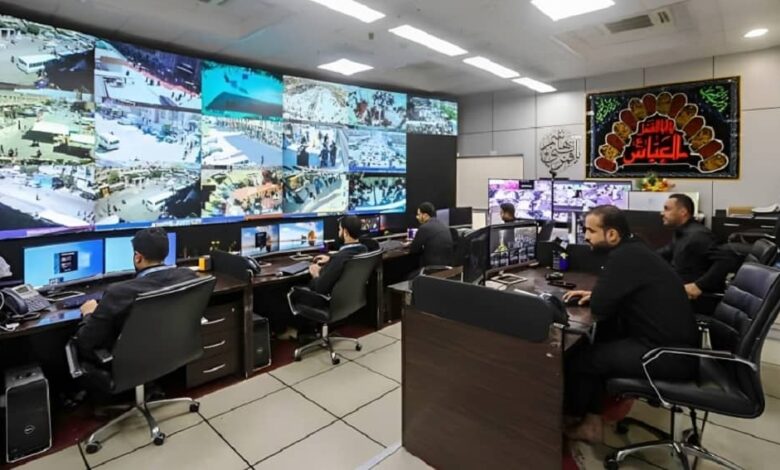The Motivation Behind Iran’s Latest Espionage Initiative

iran surveilance monitoring
Written by
Mehdi Oghbai
On Wednesday, November 8, members of the Iranian regime’s parliament advanced a plan aimed at granting the regime’s extensive security and intelligence apparatus the authority to observe and monitor the private lives of Iranian citizens, with a particular focus on tracking their online activities.
According to reports from the Mizan News Agency, during a public session of the Parliament on Wednesday morning, members of the Parliament approved clause (b) of Article 75 of the Seventh Development Plan with 162 votes in favor, 10 against, and 10 abstentions, out of a total of 220 representatives present in the chamber. This clause pertains to “Monitoring People’s Lifestyle.”
Under this clause, “executive agencies and data holders subject to this provision are obligated to continuously and comprehensively provide data to this system online.”
This system goes by the comprehensive title “Continuous Monitoring and Assessment of Public Culture, People’s Lifestyle, Media Authority, and the Country’s Communication Situation.” According to the new law, its primary goals revolve around “studying future lifestyle trends within Iranian society and comprehending cultural and communication transformations.”
As per Article 25 of the regime’s constitution, certain actions, such as inspecting and hindrance of delivering letters, recording and disclosing phone conversations, eavesdropping, any form of surveillance, and the censorship of telegraph and telex communications, are prohibited unless explicitly permitted by the law.
Obviously, in a regime that consistently disregards the private lives of its citizens, prioritizing the preservation of the state above all else, placing trust in the law holds little significance. Moreover, it’s worth noting that whenever the regime deems it necessary, its judicial system can easily establish such a law with a mere nod of approval.
#Iran News in Brief
In a recent wave of oppressive actions by the regime, Ahmadreza Radan, the Commander-in-Chief of State Security Forces, announced that a plan is being implemented to deal with #women’s dress code using surveillance cameras and #AI.https://t.co/qdaY0w4aYb pic.twitter.com/SxfwCbUaFm— NCRI-FAC (@iran_policy) June 17, 2023
Previously, the state-run Tejarat News website had reported that “if this provision is approved, all domestic platforms used by the public will be required to continuously report even the most personal details of each user, including their local and international movements, any items they buy or sell, and even the food and products they order from supermarkets to this system.”
Tejarat News added that the necessary information and data for this system must be sourced from the data held by the Statistical Center of Iran and user data within domestic platforms.
In Iran, companies that provide online services such as messaging, food delivery, transportation, and commerce are forced to provide their users’ private data to the regime without any warrant or regulation. The regime uses this information to spy on and crack down on dissidents and activists.
Moreover, the regime spends hefty sums on acquiring surveillance tools to extract sensitive information from applications and platforms that it does not control.
In recent years, there have been numerous reports from Western media and intelligence agencies regarding the regime’s increased cyber activities, targeting both its own citizens and foreign adversaries. These reports also highlight the regime’s substantial investments in purchasing surveillance technology from Chinese and German companies.
For instance, on December 19, 2022, CNN reported that the regime’s security forces arrested protesters by tracking their Telegram chats and phone logs. Furthermore, on January 17, the Washington Post revealed that Iran has been working to develop an “unprecedented” mobile surveillance system and discussed the program with Western companies, as documented in research from the University of Toronto’s Citizen Lab.
In February 2018, the NCRI held a conference, relying on sources within the clerical regime, to reveal the efforts of the Islamic Revolutionary Guard Corps and Ministry of Intelligence and Security in implementing “mass surveillance” of protesters and dissidents through a network of state-produced mobile apps.
As dissent in Iranian society continues to grow, with people increasingly angered by the regime’s discrimination, oppression, and the diversion of their resources to support its aggressive foreign agenda, the regime is actively seeking ways to identify and disrupt anti-regime activities immediately.
The MEK’s Growing Influence Sparks Iran Regime’s Fear and Desperationhttps://t.co/2cUTDRbhXp
— NCRI-FAC (@iran_policy) May 23, 2023
As this organized network of dissent spreads throughout the country, Resistance Units persist in conducting nighttime operations to strike at the regime’s most sensitive centers, while launching campaigns during the day to spread the message of the Iranian Resistance. By instilling hope in an angered society, they demonstrate Iran’s strong determination to overthrow the regime.
This is why the clerical regime, which seeks to portray itself as a formidable regional power by exploiting the grievances of neighboring countries, is extremely desperate to counter this imminent threat.
Throughout recent years, state media have published numerous reports about the increasing influence of the Iranian Resistance on the younger and disillusioned segments of society.
However, one of the most precise and notable accounts came from the state-run website ‘Rahyafteha’ in May 2020.
Emphasizing the need to prevent thousands of youths from approaching what it referred to as “the hypocrites” (the regime’s pejorative term to slander the Mujahedin-e-Khalq Organization), the article concluded with:
“Recent efforts by the Intelligence Ministry against the hypocrites were not enough for the very reason that ultimately, the esteemed Leader himself sounded the alarm bells about the dangers of eclectic ideologies. It is not enough because, in the heart of our society, we see how our youth, in the thousands, fall prey to the sinister charisma of Rajavism… Therefore, we must sound the alarm against this sinister ideology wherever it emerges. We should caution our youth against falling into the trap of the hypocrites. We must heed the Leader’s words wherever we are, ‘Everyone should be aware that they are also working on our youth… and be vigilant so as not to assist the enemy in recruiting the young members of our society.”

